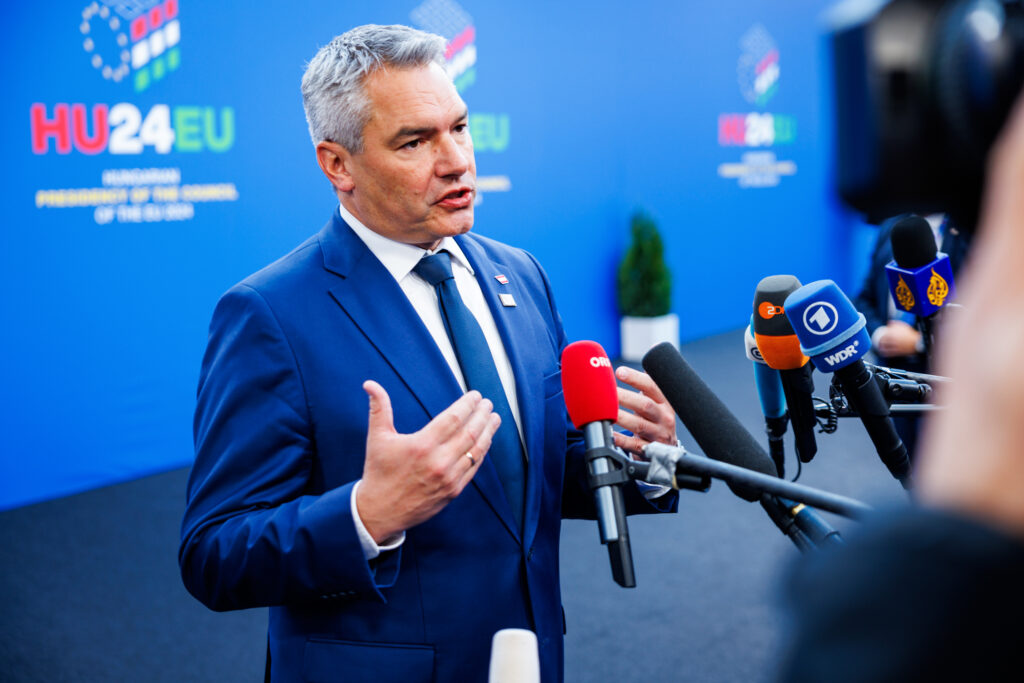Brussels – Negotiations to form a government in Austria have reached a dead end. On Friday (Jan. 3), the liberal Neos party pulled out of the negotiations to create a three-way coalition executive, citing disagreements with the conservatives and socialists and leaving it in the hands of these two political forces to keep the pro-Russian far-right out of the control rooms. But, numbers in hand, the road is all uphill.
Deadlock in Vienna. Talks to give the country a government, which began after last Sept. 29 elections in which the far-right post-Nazi, ultranationalist and pro-Kremlin Freedom Party (Fpö), led by Herbert Kickl, came in first with more than 29 per cent of the vote, which translated into 58 seats (nearly one-third of the House’s 183 total), were blown this morning.
The one who pulled the plug on the negotiations, which lasted more than three months, was the liberal Neos party, which, with its 17 elected members (8.1 per cent of the vote in the polls), is the smallest among the political forces that were trying to find a solution to hold the cordon sanitaire against the Fpö: the Populars of the Övp —the party from which outgoing Chancellor Karl Nehammer comes and which has been governing Austria since 1987—and the Social Democrats of the Spö.

Beate Meinl-Reisinger, the leader of Neos, has explained the decision by claiming that no further progress could be made in talks with the Övp and Spö, as the three parties had failed to agree on a plan for “fundamental reforms.” One of the breaking points, according to the liberals, would have been the unwillingness of their interlocutors to reform the national pension system by raising the retirement age.
Together, conservatives and socialists can count on 92 deputies, precisely the threshold at which the absolute majority in the hemicycle is set. This number leaves little room for manoeuvre and would make government action particularly complex. According to Meinl-Reisinger’s statement, negotiations between the Övp and Spö continue, while Neos would still be ready to support in parliament the measures on which it had already secured support in recent months.
But already in the moments following the liberals’ exit from the scene, Övp Secretary Christian Stocker laid the blame for the breakdown in negotiations on potential socialist allies, branding as “rearward” the most intransigent faction of the Spö that was not open to compromise with Neos.
The Populars could now test the waters with the Greens—with whom they are currently in government—to replace the centrists as the third leg of the executive. However, a return to the polls cannot be ruled out either, although such an outcome would mainly benefit Kickl’s far-right, which some polls currently give over 35 per cent of the vote.
English version by the Translation Service of Withub





